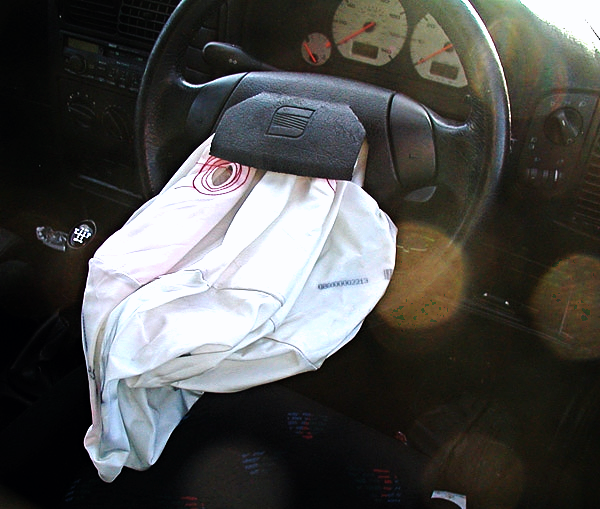Despite poor financial reports out of Tokyo, Japan this past week, Takata’s urgent need to replace more than 65 million potentially deadly airbags looms overhead. The world’s largest air bag maker, for 17 automakers, announced a net loss of $120.5 million for 2015. The anticipated losses caused the company’s stock to fall by 11%. “If, for some reason, Takata falls out of the equation, the manufacturers of the cars are still on the hook to make sure that the recalls happen,” U.S Transportation Secretary Anthony Foxx said.
Many car owners who have been contacted about their potentially defective air bags have been told by their dealers that it could be weeks or even several months before their air bags are replaced. The National Highway Traffic Safety Administration (NHTSA) announced that the recall will take place in phases which will be based on the age of the inflators and the scale of exposure to high humidity and fluctuating high temperatures.
NHTSA warned Takata that the company could be fined up to $200 million: $70 million for mishandling the recall of the air-bag inflators and an additional $130 million if it violates the settlement agreement with NHTSA. Smaller air-bag manufacturers are hesitant to increase production without assurance from the auto industry that factories and employees won’t be abandoned once the replacement requirements are met.
Foxx has stated that the government will continue to apply pressure to Takata, despite their financial situation. “Frankly, if that went into our calculations, I don’t think we would deserve to be called a safety agency. I think progress is being made, but we’ve got to keep our finger on it,” Foxx told The Washington Post.
Takata’s air bags must be replaced because of the small metal canisters which trigger the airbag inflation when a car collides with something. Takata uses ammonium nitrate in those inflators, unlike most air-bag makers. Independent studies revealed that when Takata inflators are worn down by age and hot climates, they are prone to explode, sending shards of canister metal towards the driver and passengers.
As a result of the defect, 11 Americans have died and over 100 have been injured by the inflator explosions. With little to no choice, Takata announced that they would be phasing out the use of ammonium nitrate in their airbags by 2018.
The Michigan Law Firm blog followed up on this Takata recall, as we previously wrote a blog post on the topic when the recall was first announced.
The last thing drivers expect to happen while they are driving is for their air bags to randomly deploy. Not only can the impact of the air bag injure the driver and passengers, it can cause the driver to lose control of the vehicle. If you have been involved in an auto accident caused by defective air bags or other car equipment, call The Michigan Law Firm, PLLC. Our attorneys are educated on all of the different auto recalls and will work with you to get the necessary help. Call us today, at 844.4MI.FIRM for a free consultation.


